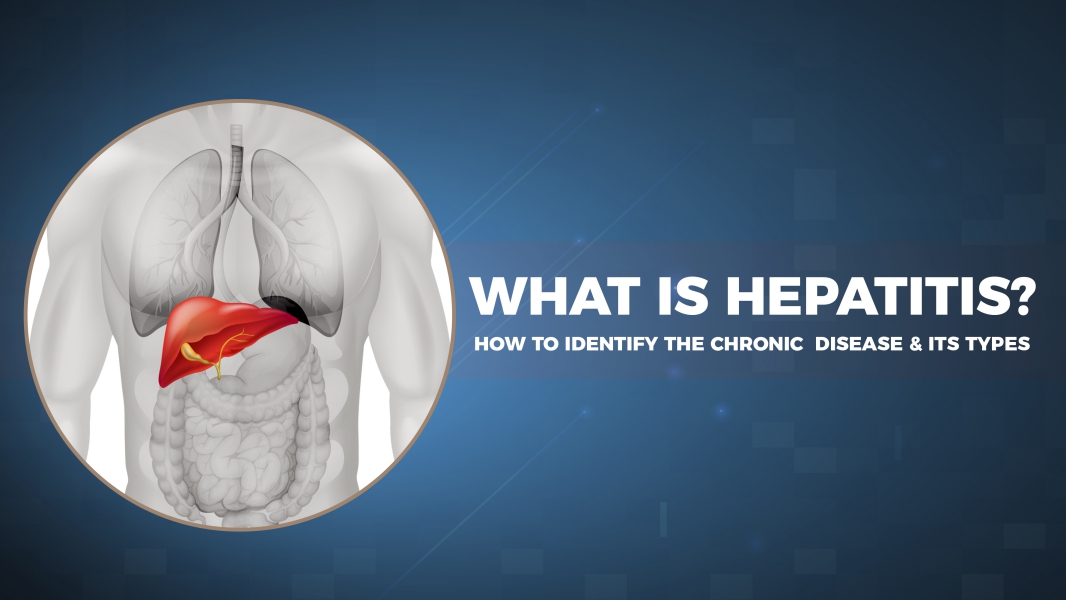Hetero Healthcare
23 Jul 2021

Hepatitis is a chronic disease that causes inflammation in the liver. Inflammation is swelling of the tissues in the body. The swelling occurs due to infections or injuries which can damage the liver and destroy liver functions.
Autoimmune Hepatitis is a situation where the body's immune system attacks your liver, this generally happens in genetics or depends upon the environment you are in.
India has "intermediate to high endemicity" in Hepatitis B surface antigen. Research says, 40 million people approximately are estimated to have HBV infection and constitute 11% of the global burden.
The pervasiveness of chronic HBV infection in India is around 3-4% approximately.
An inflammatory condition of the liver caused due to viral infections is hepatitis. It impedes the liver functions like toxins removal, hormones production, and vitamins storage, etc.
The progression of hepatitis may result in Fibrosis, Liver Cancer, or Cirrhosis.
It is of two types -
Acute (short-term) - It is a short-term and temporary condition that causes due to acute infections.
Chronic hepatitis (long term) - The other viruses are chronic that cause both acute and chronic hepatitis.
Scientists have identified hepatitis into five types, which have their own different and unique reasons and causes.
Let us take a glance at types of hepatitis.
Five types are affected by five types of viruses, and they are named after letters A, B, C, D, and E.
Let us see a brief about each type
HAV is a small, symmetrical, and unenveloped RBA virus that belongs to the hepatovirus classification. It has the characteristics of the picornavirus family, and it is transmitted through the fecal-oral route.
This virus is transmitted by drinking contaminated water or intake in contaminated food and found in the feces of the infected patients.
Certain sex practices also result in HAV.
HAV infections are mild in a few cases where patients recover with the help of the immune system. However, HAV could be life-threatening in rare cases.
As per studies, people with poor sanitization habits are prone to HAV, but safe and effective vaccinations are available for treatment.
Proper rest and hydration would better up the conditions.
Hepatitis B is the inflammation caused to the liver due to the hepatitis B virus.
It spreads through the infected body liquids like exposure to infected blood, semen, saliva. It transmits from an infected person to an uninfected person.
It can be acute hepatitis that lasts for a few weeks or six months or less than that, and a few times, it could be life-threatening.
Infected injections, contaminated blood or blood products, toothbrushes, razors, etc., are a few sources of spreading HBV.
Acute Hepatitis B virus will heal on its own, but the chronic stages might need medications or a liver transplant.
Approximately more than 90% of people recover from HBV if they diagnose it in the early stages and take medications.
Tenofovir (300mg), Entecavir (0.5mg), Tenofovir Alafenamide (25mg) are effective medicines that treat HBV infections. They stop the multiplication of viruses in the body and reduce the complications.
Hepatitis C is a virus that causes inflammation and damages the liver.
It is a critical health complication and may cause acute and chronic hepatitis. The severity of the disease might take a few weeks, months to heal or it might become a lifelong illness.
It is a blood-borne disease. It occurs when an uninfected person comes in contact with contaminated blood, infected injections, improper hygiene, or unprotected sex (fewer possibilities).
Hepatitis C leads to liver damage or cancers, it is asymptomatic in the initial stages but takes around 12 weeks to exhibit the symptoms, but still, there is a complication of spreading the virus actively.
Daclatasvir 60mg, combination of Sofosbuvir 400mg and Velpatasvir 100mg, and Ribavirin 200mg tablet treats chronic HCV virus infections.
Hepatitis D is also called hepatitis delta virus or delta hepatitis.
It is the critical condition of liver inflammation caused due to a virus called Hepatitis D and occurs only in people affected with Hepatitis B.
It is transmitted through the transfusions of HCV- contaminated blood, blood products, infected injections, sexual transmission (fewer possibilities).
HDV is critical. It might lead to liver cancers, a failure that leads to death.
Hepatitis D does not have any vaccinations. However, it can be prevented by taking the vaccination for hepatitis B.
Hepatitis E is transmitted only through the intake of contaminated water. It is found in the stool of the infected person.
It is the virus that causes inflammation of that liver that causes swelling in the liver. This complication does not stay for a long time and does not damage the liver as the other hepatitis viruses do.
It is crucial in people who have low immunity. It is said to be risky in pregnant ladies, elder people, people suffering from other sicknesses.
There are safe and effective vaccinations to treat Hepatitis E, but they are not widely spread as of now.
There are several causes of hepatitis that refer to our routine habits, and they are divided into different factors:
The symptoms of Hepatitis are mild and nonspecific and that is why chronic Hepatitis diagnosis is always delayed.
Here are a few symptoms of Hepatitis:
It is advised to see your doctor immediately if you observe any of the symptoms or abnormalities in your body to rule out the disease and get the treatment in earlier stages or it might become chronic and a lifelong health issue
Do not share used needles, water, and used personal care products such as razors, toothbrushes, etc.
Hetero Healthcare

Hetero Healthcare27 May 2024
The Thyroid: Understanding Your Body's Master Gland
The thyroid gland, a small butterfly-shaped gland located at the base of your neck, plays a critical role in regulating your metabolism.

Hetero Healthcare25 May 2024
Taking Control of Your Breath: Understanding and Managing Asthma
Asthma can feel like a constant battle for air, leaving you breathless and wheezing. But with knowledge and the right approach, you can take control of your asthma and live a full, active life.

Hetero Healthcare30 Apr 2024
A Comprehensive Guide to Malaria
Malaria, a mosquito-borne infectious disease, continues to pose a significant threat to global health. At Hetero Healthcare, we are committed to raising awareness about this preventable illness and empowering individuals with knowledge to protect themselves. This comprehensive blog delves into the causes, symptoms, and effective prevention strategies for malaria.

Hetero Healthcare30 Apr 2024
A Guide to Parkinsons Disease for Patients and Caregivers
At Hetero Healthcare, we understand the profound impact Parkinson's disease (PD) can have on individuals and their loved ones.